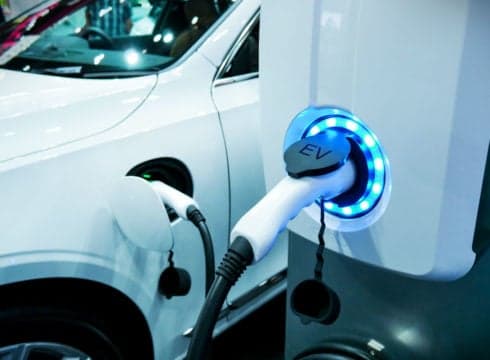Existing GST levied on electric vehicles is 12%
A proposal to reduce GST on EVs is expected to be put forward in the upcoming GST council
Indian EV industry has recorded sale of 7.59 Lakh units in India in FY2019
Inc42 Daily Brief
Stay Ahead With Daily News & Analysis on India’s Tech & Startup Economy
Indian government might slash down the goods and services tax (GST) levied on the sale of electric vehicles in the upcoming 35th GST council on June 20.
It is reportedly being proposed to bring down GST on electric vehicles to 5% from the existing 12%, which is relatively less than 28% GST for traditional vehicles.
“There is a proposal to cut tax rates on EVs among other issues,” according to an ET report which cited government officials.
Electric vehicles have been the prime focus for Modi government, which has announced multiple electric vehicle focused policy over the past five years. After the initial announcement of lower GST rates for EVs in 2017, this further slashing down of taxes can be a push for the global manufacturers to enter the Indian market.
Also recently, government think-tank NITI Aayog had proposed that only electric vehicles should be sold in India by 2030. In a cabinet note, the think-tank had asked the road transport and highways ministry prepare a framework which will help cut out on the sale of petrol and diesel vehicles.
Further, it also proposed piloting an ehighway programme with an overhead electric network to enable trucks and buses to ply on select national highways. The proposal also includes a plan to manufacture 50 gigawatt hour (Gwh) batteries by 2030.
EV Sales in India
The Indian electric vehicle industry recorded sale of 7.59 Lakh units in India in FY2019 as opposed to 56K (excluding three vehicles) in FY2018. This included the sale of 1.2 Lakh two-wheelers, 6.3 Lakh three-wheelers and 3,600 passenger vehicles
However, in April, right after the announcement of central government’s FAME II scheme, the sales of electric two-wheelers had gone down to near-zero. EV industry had attributed this slowdown to the lower availability of vehicles in the market due to the FAME II recertification rules of all existing EVs.
FAME II has mandated all original equipment manufacturers (OEMs) to get their electric two-wheeler models certified by recognised testing agencies. Only after the recertification process, the vehicles were to be eligible for incentives under FAME II.
{{#name}}{{name}}{{/name}}{{^name}}-{{/name}}
{{#description}}{{description}}...{{/description}}{{^description}}-{{/description}}
Note: We at Inc42 take our ethics very seriously. More information about it can be found here.


